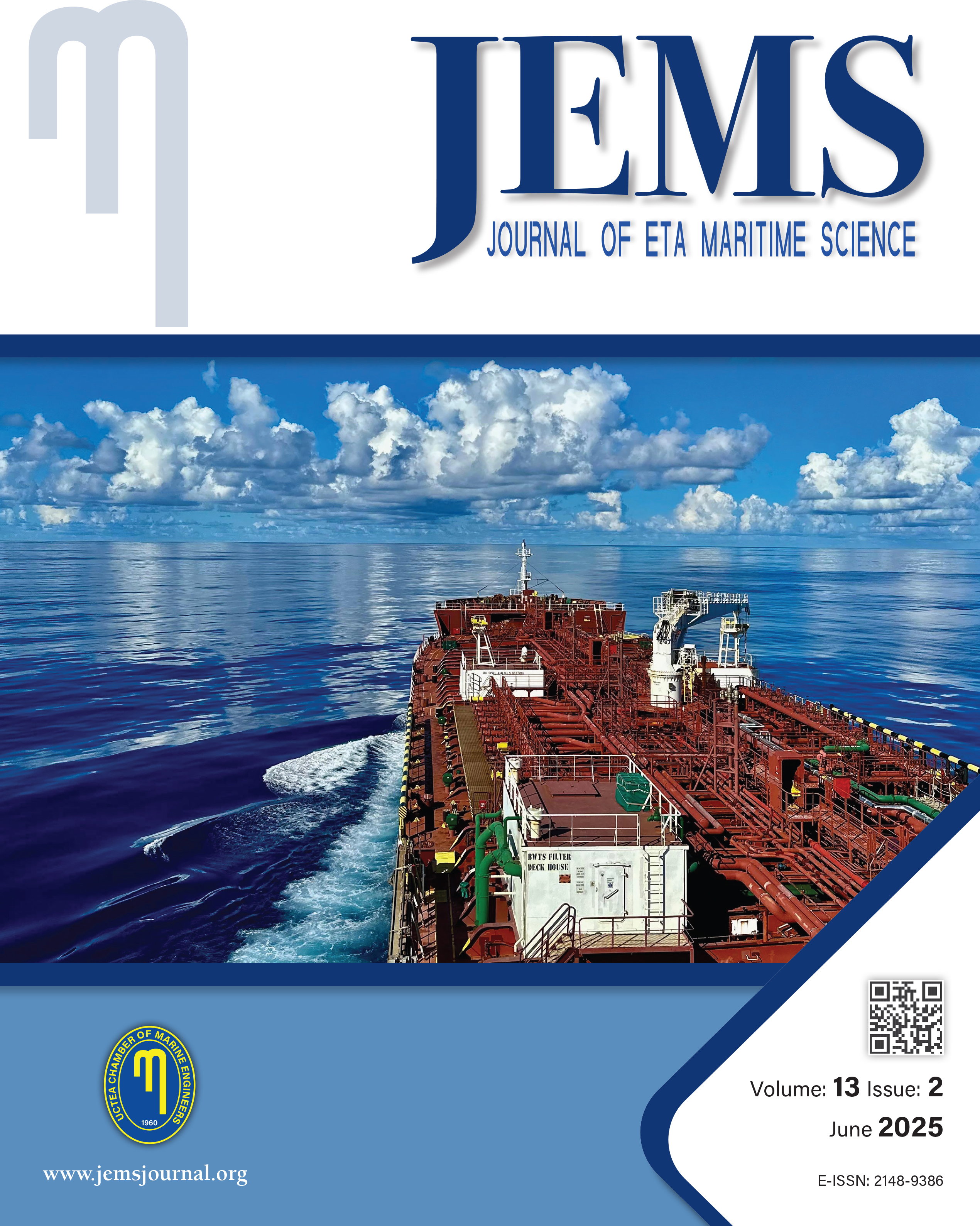

JEMS apply the Creative Commons Attribution NonCommercial 4.0 International Licence to all manuscripts to be published
Study of the Hydrocarbons Molecular Structure in Marine Diesel Fuels Using FTIR and NMR Methods
Nikolay Sinyavsky1, Oksana Synashenko1, Ivan Mershiev2, Aleksander Bulychev1, Natalia Kostrikova11Kaliningrad State Technical University, Kaliningrad, Russia2Immanuel Kant Baltic State University, Kaliningrad, Russia
A study of marine diesel fuels was conducted using high-resolution nuclear magnetic resonance (NMR) on 1H and 13C nuclei, Fourier transform infrared spectroscopy, and low-field proton NMR relaxometry. Quantitative information on the composition of hydrocarbon functional groups in diesel fuels was obtained. Data on the degree of aromaticity and branching of molecular fragments were obtained. Important comparative data on the composition of various types of diesel fuel are presented. Spectral interpretation of the chemical composition of marine diesel fuels is confirmed by literature data from studies of other petroleum products. For the first time, the distributions and values of relaxation times for each diesel fuel were determined, reflecting differences in the properties of hydrocarbons, such as increasing chain length, degree of saturation, and the presence of heteroatoms. Fuel Ecto Diesel (grade C) has a transverse relaxation time T2=777.30 ms, and it possesses the lowest viscosity. Fuel oil has a relaxation time T2=5.75 ms and the highest viscosity. A decrease in T2 is caused by a decrease in molecular mobility with increasing viscosity. The study of the properties of marine diesel fuels by non-destructive analytical methods is necessary for the development of an expert system for assessing and diagnosing the condition of marine engines.
Keywords: Marine diesel fuels, hydrocarbon structure, high-resolution NMR, FTIR spectroscopy, proton NMR relaxometryManuscript Language: English
(175 downloaded)










